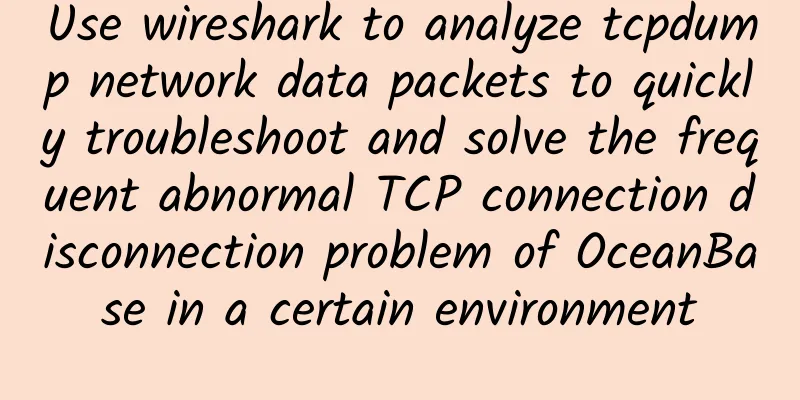IT technology companies should not be "outsiders" in the fight against the epidemic! Details revealed

|
At the beginning of the 2020 New Year, a sudden COVID-19 outbreak ravaged the country. In the process of the whole country working together to fight the epidemic, the power of science and technology has been fully demonstrated - in the past, due to the large size of image data and slow transmission, doctors could only view CT films in the office, but in Leishenshan Hospital, doctors can open dozens of CT images in a few seconds with a 5G mobile phone; the medical information system of Huoshenshan Hospital was completed in 9 days, and the head nurse can follow up on the doctor's orders and order medicines at any time on the smart terminal; remote video conferencing allows the government to understand the epidemic area information in a timely manner and make decisive decisions; in addition, there are drone images "patrolling the streets", big data analysis of community infection risks, and urban comprehensive processing platforms to view the activity trajectories of confirmed people... Among the many industries that have received the most attention and the most severe situation, the medical industry is the most watched field, especially those hospitals that treat patients with COVID-19. The needs are urgent and require the support of scientific and technological projects to ensure stability, efficiency and safety. We have seen many reports on media platforms about technology companies helping the medical system, but how exactly do they support it? What difficulties did these companies encounter in supporting the medical system during extraordinary times? What did they do outside the medical system? How do you view the "competition" between the epidemic and technology? The reporter interviewed three technology companies that were deeply involved in the "anti-epidemic" and asked them to tell the stories behind the "anti-epidemic". In Wuhan, Huawei delivered projects on the front line like fulfilling a military order On January 23, the day Wuhan was locked down, Huawei's Hubei Office received a notice from the Wuhan Municipal Epidemic Prevention and Control Emergency Command Center, "Opening the Vulcan Mountain 5G network!" Everyone knew what it meant to go to the front line of Vulcan Mountain at this time, but they chose to "go against the flow". Since that day, Huawei has been working on a series of urgent projects, including the opening of the 5G network at the construction site of Vulcan Mountain Hospital, the delivery of the campus network and video of Vulcan Mountain Hospital, the commissioning and optimization of the 5G base stations of Leishenshan Hospital, and the video conferencing support between the Wuhan Joint Logistics Center and Vulcan Mountain. On February 8, Huawei's Hubei Representative Office received another task, that Wuhan Jinyintan Hospital needed to complete the video equipment debugging. This task was different from the previous deployment in the construction phase, because Jinyintan Hospital had already started to admit patients, and all the admitted patients were confirmed patients. The 7th floor where Huawei employees were going was the ICU nurse station, which was full of severe COVID-19 patients. Huawei's 65-inch Huawei Smart Screen, camera, CPE and other equipment had to be debugged in the ICU.
Li Shun and Peng Niping, who were in charge of the project at Huawei, saw the three words "Clean Area" on the ground when they got out of the elevator. They knew very well that the other side of the door was the contaminated area, representing another world. It was impossible not to be afraid, but the time for the video call on February 10 was already set and could not be changed. In order to ensure the normal communication of the medical system, they could only speed up and speed up, first complete the debugging in the clean area, and move into the ICU after ensuring that everything was safe.
At 4 a.m. on February 10, all video equipment began to be debugged. At 7 a.m., the video equipment debugging was basically completed and everything was normal. At this time, Li Shun and Peng Niping had worn protective clothing all night, and their underwear was already soaked. They had just finished their breakfast carefully wearing protective gloves when they received a notice to move the equipment into the ICU. So the two put on new masks and gloves, and with the help of doctors and nurses, moved all the equipment into the ICU. Since the space in the nurses' station was not large, in order not to hinder the normal work of the nurses, they moved the table and rearranged the equipment, found the best video angle, and solved several minor problems in the debugging.
On the afternoon of February 10, government leaders in Beijing expressed their condolences to the medical workers fighting on the front line in Wuhan via video link. Many people watched the video link through the evening news broadcast. The heavy condolences gave the medical workers more morale to fight the disease. What supported this clear and smooth picture was the sweat and sense of mission of the two Huawei employees who fought day and night. In the face of the epidemic, everyone is a warrior, and technology companies have never been "outsiders." In Beijing, manpower and logistics are no problem for Donghua Software In this pneumonia epidemic, if Hubei is the frontline combat zone with the most serious epidemic, then the designated hospitals in other provinces and cities are the last line of defense against the virus blockade. Designated hospitals with high medical standards and adequate protective measures have become the "shield" of the city against the virus. Beijing Ditan Hospital is one of the designated hospitals in Beijing for the treatment of COVID-19. In order to respond to the epidemic, it urgently built an emergency ward for COVID-19. In the construction of information support, in addition to the professional hospital information system, it also selected Donghua Software's AD4000 series load balancing products.
Liu Jie, general manager of R&D of the Network Technology Division of Donghua Software, told reporters that in the past, as a star product in the Donghua Software product family that has more than 100 mature application cases in large and medium-sized hospitals, the deployment of load balancing projects was carried out according to standard procedures and it was easy. But in this extraordinary period, the epidemic is urgent and not a minute can be delayed. However, during the Spring Festival, employees were on vacation and the staff was very short. Previously, Donghua Software formed a 300-person medical Vulcan Mountain IT project commando team to assemble and complete the construction of the Vulcan Mountain Hospital information management system in 9 days. In the face of both personnel and logistics difficulties, Donghua Software's emergency dispatch personnel worked overtime to complete hardware stocking and factory testing, and the products were delivered to the user site in just three days. The implementation engineer took protective measures and went to Ditan Hospital to complete the installation and commissioning of the equipment, contributing his own strength to the construction of the emergency ward information system. In addition to medical care, "sense of security" is still important In addition to the angels in white who support and rescue patients, technology companies are also invisibly protecting the security of medical applications. Fang Ning, senior vice president of Bangbang Security, told reporters that medical insurance apps have higher requirements for the real-time and integrity of data, and also carry more personal privacy data. The accuracy of the data not only affects the correct judgment of medical services, but also threatens the life safety of patients, so security protection is more needed. Security protection manufacturers like Bangbang Security have also taken active actions since the outbreak of the epidemic, providing security services for various apps in the medical system 24 hours a day, 7 days a week. According to him, during the "anti-epidemic" period, there are still gangs or hackers with ulterior motives who took advantage of the epidemic to loot, compile Trojans and ransomware, affect the normal business of industry users and enterprises, or attack the network. For example, during the epidemic, a customer of Bangbang Security had money transferred by non-cardholders. Bangbang Security immediately arranged for security service experts to conduct remote security assessments and troubleshooting for the customer, timely discover business vulnerabilities, and assist customer developers in vulnerability repair. It must be admitted that nowadays, App clients carry more business logic, sensitive information, and local computing than before, and the difficulty of security protection has increased dramatically. Security protection vendors must not only consider development and security issues, but also compliance and privacy protection issues. This requires security vendors and security service personnel to not only be proficient in security attack and defense technologies and development trends in their fields, but also be proficient in policies, regulations, and industry standards, and have an in-depth understanding of corporate customers' industry knowledge, professional terms, and business scenarios, especially new business scenarios brought about by new technologies. "Under such circumstances, the work done by security vendors will alleviate the anxiety and pressure of enterprises to a certain extent, allowing them to devote more energy to fighting the epidemic and ensuring business. At the same time, it will also indirectly give the general public who are 'staying at home for protection' a greater sense of security," Fang Ning concluded. Crisis and opportunities brought by an epidemic Technology companies involved in this epidemic have deep feelings about it. Liu Jie of Donghua Software told reporters that compared with the SARS in 2003, informatization has played a greater role in epidemic prevention and control this time. The informatization platform plus big data, artificial intelligence and other means have made epidemic prevention and control smarter and more efficient. It has to be admitted that in the process of fighting the epidemic, the technology industry has a heavy responsibility, but it has also ushered in an excellent opportunity for development. After all, the power of technology that people feel firsthand has a stronger influence and concept-cultivating effect than the hundreds of events held by technology companies every year. Liu Jie predicted that through this epidemic, people have realized that informatization plays an increasingly important role in the medical industry, which is basically equivalent to the nervous system in the medical industry, so the medical industry will increase its investment in informatization in the future. First of all, users in the medical industry will pay more attention to the rapid deployment and rapid response of the system, how to build the informatization system of emergency hospitals and emergency wards as soon as possible, and how to put it into use as soon as possible. Secondly, the standardization of medical information systems is very important. For example, during this epidemic, medical personnel from all over the country went to support Hubei, including the standardization of data and systems. Finally, in terms of the open sharing of medical data, the connection between medical systems and community management data, the referral connection between hospitals, and how to do a good job of data security protection while opening and sharing data are all important directions that need to be strengthened in the future. Now is the most critical moment to fight the epidemic. We have seen that domestic technology companies are united in their efforts to improve the information level of the entire industry, so that people can have more powerful power and more efficient collaboration to fight the epidemic. I would like to give a thumbs up to them, and also to each of us who stick to our jobs. May the Great Wall of Science and Technology be forever strong and defeat the virus! |
Recommend
10 steps to improve application and network performance
If you work in a network operations team, you kno...
Baidu Takeaway Zhang Jian: Using software engineering thinking to solve operation and maintenance problems
[51CTO.com original article] On April 14, 2017, W...
Zhao Huiling: Open innovation ecosystem promotes the development of network technology
At the theme forum "Future Network Technolog...
Vultr US Silicon Valley Data Center VPS Simple Test
I haven't shared information about Vultr for ...
PacificRack: Windows VPS in Los Angeles Data Center starting at $12 per year
PacificRack has released several discounted VPS p...
Still using OpenFeign? Try this new thing in SpringBoot3!
The New Year is over, and Brother Song has been m...
When the boundaries begin to blur, where do routers and switches go?
In the past few years, we have increasingly seen ...
DogYun New Year's Day promotion: 30% off on Elastic Cloud, 20% off on Classic Cloud, 100 yuan off per month for dedicated servers, 10 yuan free for every 100 yuan recharged
DogYun (狗云) has launched a promotional event duri...
Which industry will be the hot spot for artificial intelligence in the 5G era?
In this process, many applications are constantly...
Huawei launches Global Industry Vision 2025: Uncovering the industrial landscape of the intelligent world
Huawei recently released its Global Industry Visi...
After rejecting Huawei, 5G development in Europe and the United States is suffering. Netizens: They are reaping the consequences
In order to boycott Huawei's 5G equipment, th...
5G latency: Why faster networks matter
When you look at your mobile network or home broa...
How 5G will help wearable devices like smartwatches charge automatically
[[435239]] In Japan, a trial project to wirelessl...
6G is coming? Is it too early to start 6G research now?
With the implementation of 5G, the direction of m...
7.2 Our computer room is disconnected from the Internet! What should I do?
1. Background At 10:04 on July 2, 2024, the publi...









